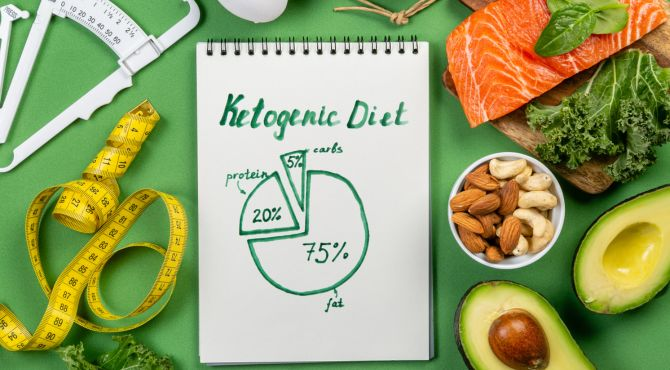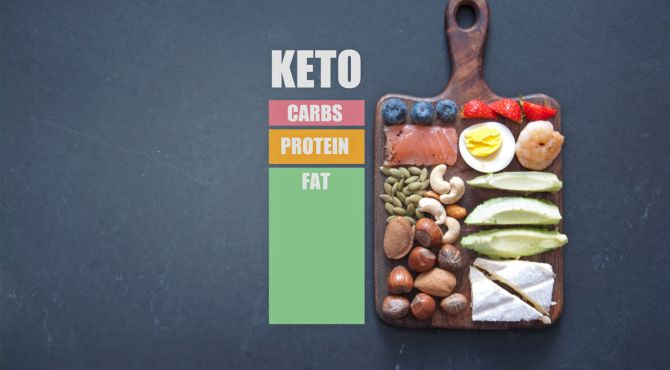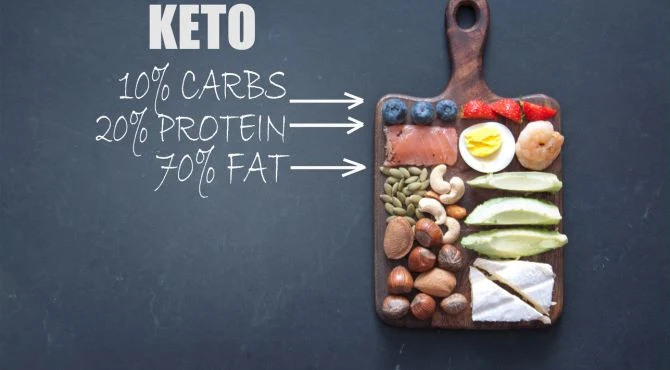Foods to Avoid on the Keto Diet for Effective Weight Loss

Foods to Avoid on Keto.The ketogenic diet, commonly known as the keto diet, has gained significant popularity as an effective method for weight loss. This low-carb, high-fat, and moderate-protein diet aims to shift the body's primary source of energy from carbohydrates to fat, leading to a state of ketosis. While the keto diet can yield desirable results, it requires adherence to specific dietary guidelines, which include avoiding certain foods. Understanding which foods to avoid is crucial for maintaining ketosis and maximizing the benefits of this dietary approach. In this essay, we will explore a comprehensive list of foods that should be avoided on the keto diet.
Foods You Can't Eat on Keto

The ketogenic diet, often referred to as the "keto" diet, is a low-carb, high-fat, and moderate-protein eating plan designed to help individuals burn fat as their primary energy source. By focusing on reducing carbohydrate consumption, the keto diet sets itself apart from other diets that primarily emphasize calorie reduction. While the keto diet can produce the desired results, it comes with a set of dietary restrictions that can be challenging to navigate. This essay aims to provide a comprehensive list of foods that individuals should avoid at all costs while adhering to a ketogenic lifestyle:

- High-Carb Foods: To achieve and sustain ketosis, it is essential to limit the consumption of high-carb foods. These include grains, sugars, and certain fruits. Foods such as rice, wheat, oats, barley, rye, quinoa, and buckwheat are rich in carbohydrates and should be avoided on the keto diet. Starchy vegetables like potatoes, peas, sweet potatoes, yams, corn, and cassava also fall into this category. Legumes, including beans, chickpeas, and lentils, should be consumed in moderation due to their relatively high carbohydrate content. Refined carbohydrates like bread, pasta, pastries, tortillas, and sandwiches are particularly detrimental to ketosis and should be strictly avoided.
- Processed Foods: Processed foods are a major impediment to successful keto dieting. These foods are not only high in carbohydrates but also contain unhealthy fats, sodium, sugar, and preservatives. Snacks such as chips, crackers, and pretzels, as well as fast foods like fries, burgers, pizza, burritos, and muffins, should be eliminated from the diet. Packaged sausages, salami, and similar items that often contain excessive sodium should also be avoided due to their negative impact on water retention. By eliminating processed foods, individuals can improve their overall health while maximizing their weight loss potential on the keto diet.
- Sugary Drinks, Juice & Sweet Syrups: Sugary drinks pose a significant threat to maintaining ketosis. Freshly squeezed fruit juice, although natural, contains high levels of sugar and lacks dietary fiber. Packaged fruit juices are even worse, as they often have added sugars. Flavored soda, soft drinks, mocktails, and other packaged beverages are also laden with carbohydrates and sugar. For example, a can of coke contains a staggering 39 grams of sugar, while a fresh lime mojito contains 26 grams of sugar in just an 8-ounce serving. Additionally, the consumption of honey and other sweet syrups, such as maple syrup, should be strictly avoided due to their carb content and potential to spike blood sugar levels.
- Alcoholic Drinks: Alcoholic beverages can be a hidden source of carbohydrates and sugar, making them incompatible with the keto diet. Beers, sparkling wines, dessert wines, mixed drinks, and cocktails are typically made from grains or fruits that contain carbs and sugar. These drinks can not only hinder weight loss progress but also disrupt ketosis. It is best to avoid alcohol altogether or opt for low-carb alternatives if occasional consumption is desired.
- Trans & Hydrogenated Fats: Trans fats and hydrogenated fats are highly detrimental to overall health and weight loss, making them unsuitable for the keto diet. Foods that contain these unhealthy fats include margarine, processed oils like canola, sunflower, and soybean oil, vegetable shortening, refrigerated doughs like rolls and biscuits, and non-dairy coffee creamer. Instead, healthier alternatives such as olive oil, avocado oil, and coconut oil should be chosen to provide essential fats while supporting weight loss goals.
- High-Carb Condiments & Sauces: Condiments and sauces often hide high amounts of sugar, carbs, sodium, and unhealthy fats. Barbecue sauce, ketchup, honey mustard, sweet chili sauce, and teriyaki sauce are examples of condiments that should be avoided on the keto diet. These substances can undermine ketosis and hinder weight loss progress. Opting for low-carb alternatives or making homemade versions of these condiments can provide flavor without compromising dietary goals.
Foods to Eat on the Keto Diet

While there are many foods to avoid on a keto diet, you don't need to go hungry. There is a wide range of low-carb vegetables, fruits, and lean meats that are perfectly suited to the keto lifestyle. Here is a list of foods that you can add to your ketogenic diet without guilt:
Low-Carb Vegetables and Low-Sugar Fruits
Low-carb vegetables should be a staple in your keto diet as they provide essential nutrients, vitamins, and minerals while keeping your carb intake in check. Some examples of low-carb vegetables include:
- Leafy Greens: Spinach, kale, lettuce, mustard greens, arugula, and cabbage are excellent choices for low-carb vegetables.
- Non-Starchy Vegetables: Include vegetables like jalapeno, bell peppers, zucchini, green beans, asparagus, broccoli, cauliflower, cucumber, mushrooms, turnips, radishes, okra, and eggplant in your diet.
- Low-Sugar Fruits: Berries, avocados, coconuts, and olives contain minimal natural sugar, making them suitable for a ketogenic diet.
Healthy Fats and Oils
Healthy fats are a cornerstone of the keto diet, providing a significant portion of your daily caloric intake. Include the following healthy fats and oils in your keto menu:
- Olive Oil: Extra virgin olive oil is a staple in Mediterranean diets and is rich in healthy monounsaturated fats.
- Avocado Oil: Avocado oil is another excellent source of monounsaturated fats and can be used for cooking and dressings.
- Coconut Oil: Coconut oil contains medium-chain triglycerides (MCTs), which are quickly converted into energy, making it a preferred choice for keto cooking.
- Ghee and Butter: Ghee is clarified butter, while regular butter is also acceptable on a ketogenic diet in moderation.
- Nuts and Seeds: Almonds, walnuts, macadamia nuts, chia seeds, flax seeds, and pumpkin seeds are high in healthy fats and can be incorporated into your diet.
- Dairy: Cream and half & half can be consumed in moderation, and plain Greek yogurt is another option.
- Cheese: Various types of cheese, such as cheddar, blue cheese, feta, cream cheese, goat cheese, mozzarella, Swiss cheese, and cottage cheese, are low in carbs and high in healthy fats and protein. However, it's essential to consume them in moderation and avoid excessive intake.
Lean Protein
While the primary focus of a keto diet is on fats and low carbs, including lean sources of protein is crucial for maintaining muscle mass and overall health. The following lean protein sources are suitable for a ketogenic diet:
- Poultry: Chicken, turkey, and duck are lean sources of protein that can be enjoyed on keto.
- Grass-Fed Meat: Beef, goat, and lamb from grass-fed sources are rich in healthy fats and make excellent choices for a ketogenic diet.
- Eggs: Eggs are a versatile source of protein and healthy fats that can be included in various keto recipes.
- Fish: Fatty fish like salmon, tuna, and cod provide omega-3 fatty acids and are suitable for a ketogenic diet.
- Seafood: Shrimp, lobster, crab, and other seafood options are low in carbs and can be consumed on a keto diet.
Post a Comment